- Administrator
- Albums and Singles
 Although Rhythm & Sound's estimable reissue campaign of the Bronx’s formidable and nearly forgotten Wackies label has garnered much praise among critics and fans, just about every new resurrected release from the comparatively hodgepodge Basic Replay sister imprint garners at least as much if nor more excitement among sound system selectors and hungry collectors. Compiling sixteen mostly vinyl-only tracks from the label’s small yet potent catalog, this overdue disc finally brings these scorching, mostly digital tunes to the unaware masses.
Although Rhythm & Sound's estimable reissue campaign of the Bronx’s formidable and nearly forgotten Wackies label has garnered much praise among critics and fans, just about every new resurrected release from the comparatively hodgepodge Basic Replay sister imprint garners at least as much if nor more excitement among sound system selectors and hungry collectors. Compiling sixteen mostly vinyl-only tracks from the label’s small yet potent catalog, this overdue disc finally brings these scorching, mostly digital tunes to the unaware masses.
Those who enjoyed the dancehall style of Basic Replay's 2006 essentials White Mice and White Mice Versions have plenty to get excited about here. As should be expected, young Allan Crichton, sounding significantly more mature here on "Nothing Ever Done Before The Time" than the high-pitched boy of those essential Intelitec collections, absolutely kills it over tough machine beats and horns. Chuck Turner and Professor Grizzly go head-to-head with their respective vocal takes over one of the most fantastic riddims I have ever heard. Although Turner's marginally superior "Trying To Conquer I" rails courageously against the vampires that attempt to undermine righteous Jah people, Grizzly more than holds his own while scatting rapid-fire over "Fight The Professor." Onetime Black Uhuru vocalist Andrew Bees wails exquisitely in the tradition of his predecessors Michael Rose and Junior Reid with "Militant." Spouting a signature "tu tu twang" over the bubbly grooves, the underestimated soloist's performance dares wonder-stricken listeners not to seek out his hard-to-find 1995 Music Lion / Ras Records album of the same name.
Although the dancehall numbers dominate, roots-and-culture devotees will relish the soulful Rastafarian vibes of arists like King Culture that define the other side of Basic Replay's output. Ijahman Levi treats us to two gloriously deep tracks, "I Am A Levi," heard by many on his Haile I Hymn LP, and its expansive dub "Part 2." Digging deeper, the late dark prince of reggae Keith Hudson graces us with his presence with the brief but effectively jarring tribalism of "Hunting," while a haunting organ line and some sparse vocals, male and female, drive the legendary Jackie Mittoo's "Ayatollah" into a shadowy corner worth exploring further.
While it is an altogether unparalleled tastemakers' selection, my sole grievance with Basic Replay is an admittedly selfish one. Save for rare cases, the flipsides of the cuts featured here are tragically missing, something that could have been rectified with a second disc at an appropriately higher price. Naturally, this allows the aforementioned vinyl coveters to maintain some precious exclusivity in their crates, adding an intangible value best experienced in a dancehall than on an iPod.
samples:
- Chuck Turner - Trying To Conquer I
- Jackie Mittoo - Ayatollah
- Andrew Bees - Militant
Read More
- Administrator
- Albums and Singles
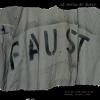 This double live album documents the group's first foray into Polish territory. The sound quality is vastly superior to last year's In Autumn box set of live recordings. Each little noise right up to the mightiest clamour is captured quite clearly; it is almost possible to smell the sweat.
This double live album documents the group's first foray into Polish territory. The sound quality is vastly superior to last year's In Autumn box set of live recordings. Each little noise right up to the mightiest clamour is captured quite clearly; it is almost possible to smell the sweat.
Faust open with a new song called "Sex," an improvisation leading on from a recording of a man speaking about sex in German (referring to the act, not the number). This piece sets a high standard for the rest of the album, the raw power of the band is like a truck hurtling out of control and heading straight for where I am sitting. "We Are Not Here…" raises the bar again in terms of sheer brute musical beauty. Although I unfortunately must experience Faust live only through these second hand experiences, on Od Serca Do Duszy it is possible to feel the danger and excitement that the group are renowned for.
It is not all flexing muscles and battering sheet metal into smithereens; the gorgeous "Our Soul to Your Ears" provides a welcome breather amidst the raucous din. Here Jean-Hervé Péron urges the crowd to shut up and (amazingly!) they do. The band then use this almost blank canvas to sketch out a delicate piece of music that proves that they are not just living off the glory days of their youth. This is only the eye in the storm as the peace quickly gives way to "Ist Rund Schoen?" I have never been big on this song in any of its previous incarnations but Poland must have brought something great out in Faust as it is a cracker here.
The second disc sees Faust in improv mode, half of this disc is given up to two wild tracks of jamming. "Impro: Krakow I" is the kind of song that would make Acid Mothers Temple extremely jealous. An encore of their signature tune ("Rainy Day Sunshine Girl") is the icing on an already sweet cake. It is as vivid an image of an instant in time as one could hope for. Indeed, as live albums go (and live Faust recordings for that matter), Od Serca Do Duszy is a decent stab at capturing a band in the moment.
samples:
Read More
- Administrator
- Albums and Singles
 This is a mixed bag; there are sections that are incredible and beautiful but unfortunately there is an equal amount of music that is difficult to digest. It sounds like something I should be into, however there is something missing or that I am not getting that is preventing me from fully appreciating this album. Maybe it is the fact that many of these pieces were written and recorded for exhibitions and installations that leaves the music feeling a little empty.
This is a mixed bag; there are sections that are incredible and beautiful but unfortunately there is an equal amount of music that is difficult to digest. It sounds like something I should be into, however there is something missing or that I am not getting that is preventing me from fully appreciating this album. Maybe it is the fact that many of these pieces were written and recorded for exhibitions and installations that leaves the music feeling a little empty.
"The Stillness of Chinese Jars" and "Kettleblack" both reflect Mouldycliff's best musical sides. The chiming calm of "The Stillness of Chinese Jars" makes for an exceptionally pretty piece of music. Taking this prettiness and warping it, "Kettleblack" makes for an unsettling and disorientating five minutes. There is a strong sniff of David Lynch-style atmospherics throughout the piece and the sounds conjure up very lucid images; in my mind's eye I can see a very slow shot panning across an empty, rather ordinary but slightly askew room.
The longest piece on Written on Water breaks the spell that Mouldycliff initially casts on the listener. It is hard to pick out what it is exactly that makes "A Speculative Atlas (for David Mitchell)" so hard to listen to. It all sounds a bit clichéd, the sustained notes on the wind instruments and the flurries of piano noodlings bursting in every now and then. One element that I felt did work is the sound of children pushed way back in the mix. The first time I listened to it I did not know whether kids were causing havoc outside or whether it was on the CD.
On the final piece, "Spirit of Place," there are elements both of The Hafler Trio and Nurse With Wound which is not surprising considering the involvement of Colin Potter as producer. This is where Mouldycliff actually shines, even if it is heavily indebted to what other artists have done before. Mouldycliff never reaches the same psychedelic heights as these other artists but it is hard not to slip into a daydream listening to the heady drones of this piece.
Aside from those few pieces where Mouldycliff loses his footing, Writing on Water is an enjoyable but a bit of a journeyman selection of experimentations. When he is at his weakest, he is still at least worth a listen to try and figure out what is not sitting right with me. I feel his music is something I should appreciate but cannot pinpoint the cause of my discomfort while listening. Every year I read Conrad's Heart of Darkness because I do not enjoy it and feel I must. One day it surely will fall into place. I get the same feeling from this album. There is something worth investigating here but there is also some invisible barrier in my way.
samples:
Read More
- Administrator
- Albums and Singles
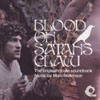 The phenomenal Trunk label keep up their unique work by giving Marc Wilkinson's score for a 1971 cult British horror movie its first ever release. Film fans, soundtrack aficionados, and addicts of obscure music will all be thrilled, as Blood on Satan's Claw is beautiful and disconcerting in equal measure.
The phenomenal Trunk label keep up their unique work by giving Marc Wilkinson's score for a 1971 cult British horror movie its first ever release. Film fans, soundtrack aficionados, and addicts of obscure music will all be thrilled, as Blood on Satan's Claw is beautiful and disconcerting in equal measure.
Most of my memories of the golden age of British horror involve sitting on couches in the homes of various friends sometime around 11:45 pm on a Friday or Saturday night, drunk, eating chips or toast. Hopefully, on the television would be a historical drama that was ever so slightly camp, fairly nasty (without excessive gore), reassuringly predictable in terms of plot, and full of titillating flesh! Ideally, the craft of solid character actors could allow the proceedings to avoid both tongue-in-cheek complacency or wooden heroics, and the nudity might provide lashings of conflicting evidence for what may now be called the Darryl Hannah/Betty Page conundrum. For sure, the shifting atmospheres of suspense, lust, confusion, mystery and fear would always depend upon the music.
As befits the soundtrack to a quality movie from the Tigon production team that three years earlier had made the remarkable Witchfinder General, there is something decidedly off-kilter and addictive about this music. It was designed that way. For starters, composer Marc< Wilkinson added a couple of twists to the standard orchestral lineup. The eerie swooping sounds were created by using the Ondes Martinet, a keyboard which he describes as "without doubt the first really successful electronic instrument." In addition he used the cimbalom, a kind of piano played with mallets that in Eastern Europe has sometimes been associated with the Devil. The unease that this music stirs has roots that are deep and ancient. As Wilkinson reveals: "The descending chromatic scale which features throughout the music omits the perfect fifth (the only true consonant in the chromatic scale) and therefore highlights the diminished fifth, which ever since the middle ages in Europe has been known as the Devil's Interval!"
If that all sounds rather academic then fear not, for parts of this disc are almost as lush as the theme from the 1964 TV series Robinson Crusoe, a tad spookier than the Dr Who theme, and as alluring as both. Blood on Satan's Claw fits perfectly with the vision of label boss Jonny Trunk. Trunk unearths gems which transcend kitsch and nostalgia by celebrating the sonic quality of their essence. The label has issued John Cameron's music from Kes, sublime smut from a 1970s English porn queen on Mary Millington Talks Dirty, original music by Delia Derbyshire and others from the TV series The Tomorrow People, and the lost advertising sounds of Music For Biscuits. Trunk has also put out an unreleased soundtrack to George Romero's Dawn Of The Dead, Oliver Postage's music from the children's TV show The Clangers (the first 26 vinyl copies in pink and gold hand knitted sleeves) the soundtrack to the insane biker movie Psychomania, and music from Gerry Anderson's still sexy and hip space TV show UFO. That's not to mention Resurrection (an album of holy jazz, altar rock and Christian freakouts) or Desmond Leslie's Music Of The Future—the "musique concrete" of an ex-spitfire pilot who created music from the sound of the destruction of musical instruments. It would be remiss to forget to mention the records of "ambient godfather" Basil Kirchin. His band sometimes included Jimmy Page and Tubby Hayes and Abstractions of The Industrial North is but one of his fabulous records. Doing justice to the Trunk catalog in a single paragraph is impossible but it's safe to say that the wise will want to avoid missing their limited issues. The recent sampler Now We Are Ten is a great place to start.
Of course, not everyone has Trunk's ear or cultural instinct: the film Blood on Satan's Claw was released in the US as Satan's Skin but, without wishing to give away the plot, it's hard to escape the feeling that whoever chose that title missed a great opportunity to call it Satan's Eyebrows.
samples:
Read More
- Administrator
- Albums and Singles
 Presented as a follow up to 2004's Grapes from the Estate, this album continues Ambarchi's exploration of crystal clear ambience. Sharing the same mix of patient tempos and penetrating subsonics, these songs could fit unnoticed right beside their predecessors. The difference emerges in the details, and the increased use of untreated guitar, strings, and voice makes for a understated yet compelling departure.
Presented as a follow up to 2004's Grapes from the Estate, this album continues Ambarchi's exploration of crystal clear ambience. Sharing the same mix of patient tempos and penetrating subsonics, these songs could fit unnoticed right beside their predecessors. The difference emerges in the details, and the increased use of untreated guitar, strings, and voice makes for a understated yet compelling departure.
For a while, I had trouble placing Ambarchi in Southern Lord's aesthetic. Despite his notable contributions as a Sunn O)) and Grave Temple Trio member, his solo material seemed removed from the label's doom and sludge metal mainstays. The one notable connection being the obsessive use of sub-bass. The booms and cracks of Ambarchi's mangled guitar mimic the detuned riffing of doom metal, but with the distortion scrubbed completely off, leaving only a chest rattling thud. Before, these heavier elements were balanced out with chiming tones and jazzy drum fills. The mood of In the Pendulum's Embrace is darker and the rhythms plodding, more of kind to Ambarchi's collaborative work for the label.
The label-centric similarities don't end with Ambarchi's amp-worship. The spacious twang of "Fever, A Warm Poison" is reminiscent of Dylan Carson's recent clean, countrified sound. Because of his unique arrangements, Ambarchi avoids the dreary repetition Earth can get mired in. Piano, bells, and processed harmonics merge together sounding like a continuum of the same tone rather than separate instruments. These jagged but tightly interlocked elements provide a solid base for the Ambarchi's electric guitar to meander over.
Ambarchi shines most on his more subtle compositions. On "Inamorata" a string section gradually swells in, vibrating the song into a tremulous boil. But instead of reaching the expected crescendo, the strings vanish, like a departing gust of cold air. "Trailing Moss in Mystic Glow" gently ends the album with acoustic finger picking and the surprising addition of vocals. Ambarchi sings wordlessly, confining himself to soft moaning. That brief touch of humanity softens the dour mood of album, ending it with a delicate and plaintive fade out.
When first listening to the album, I was worried that Ambarchi would simply repeat Grapes from the Estate and settle into a single style of playing. That's not the case. Instead, Ambarchi borrows the best from what is around him, enriching his already diverse body of work.
samples:
Read More
- Administrator
- Albums and Singles
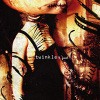 This duo issue their first album ("The Toy" in English) two years after their Audiotrauma Processing Industry EP, in a joint release between that label and Ant-zen. Le Jouet explores the many different aspects of toys, from those that children play with to those used by adults, either in role-play or, as they claim, those "deadly weapons used like toys by grown-ups who can never negate the children they once were." The duo do this by utilizing a combination of beat styles, samples, and ambient passages together with distorted vocals and simple melodic structures, ranging across a variety of styles in the process.
This duo issue their first album ("The Toy" in English) two years after their Audiotrauma Processing Industry EP, in a joint release between that label and Ant-zen. Le Jouet explores the many different aspects of toys, from those that children play with to those used by adults, either in role-play or, as they claim, those "deadly weapons used like toys by grown-ups who can never negate the children they once were." The duo do this by utilizing a combination of beat styles, samples, and ambient passages together with distorted vocals and simple melodic structures, ranging across a variety of styles in the process.The two men responsible, Yves Cornu and J.B. Leduc, in taking all these styles have concocted a wide-ranging mix of songs. Certainly they have tried to keep moving stylistically, refusing to be constrained by any boundaries or particular genre parameters. It is all too easy these days, given the democratization of (musical) technology and the ease of access to it, for people to simply regurgitate what has gone before, then record, package and release it. Twinkle are to be commended for avoiding that trap, instead giving us a varied but solid set of thematically-linked songs. Despite that variety, there exists a coherence binding the entire album together, especially in the latter half where everything takes on a much harder edge. I heard a definite linear progression from innocence to darkness, from the inventive play of children to the 'games' of adults, with their sexual and dominatory subtetxs.
Even the military uses the term 'war-games,' which implies a form of play, a euphemism disguising the true intent of the exercise. From beginning to end there is a wonderfully subversive and sinister undertone running beneath the playful surface, especially noticeable in the first half of the album, which emphasizes the true nature of toys, play, and games, with the often hidden facets of politics and dominance. After all, this is how children learn about social interaction: lessons which are often carried through into later life, for better or worse.It is that undercurrent of subversion and deviousness that does it for me. The third track "Ton Style" is an example: initially it starts out as music-boxy but as it progresses it takes on more and more of a soiled edge until finally it ends with a dirty and distorted stutter, the song suffused with a subtle anger and malevolence. The next track, "La Victime Volontaire," is ostensibly a hip-swinging middle-eastern influenced number but perhaps it takes on a deeper and darker significance in today’s political climate; I can imagine how the sentence I used from the press-release in my introductory paragraph above could apply here.
The highlights of the album, the ultimate confluence of all the themes and ideas that form the various streams feeding into this album, are tracks eight and nine, "Le Joueur" and "Tu es Perdu" respectively, particularly the former, even though it only lasts for just under two minutes. There is something shiver-inducing about the use of a 'jolly' child-like melody coupled with speeded up samples and children singing over a distorted dance-floor workout. The following track is a full-on tribal stomp that wants to get you up and moving your feet, however reluctantly.
I haven't listened to rhythmic industrial since Frontline Assembly's Millennium, feeling at the time that the genre had run out of both steam and originality. On hearing this offering though I have come to realize though that I may have a bit premature in my assessment. Certainly I have heard considerably worse.
samples:
Read More
- Administrator
- Albums and Singles
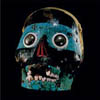 It's good to know that rock music isn't truly dead. Sure, the coroner has been called out many times to check the corpse, but as long as albums like this are around, there will be a bit of pulse left in the ol’ body. Here is yet another recontexualization of the various fragments of rock in the past four decades into a unique brew that doesn’t specifically sound like any previous band, but the vibe of their legacies are definitely there.
It's good to know that rock music isn't truly dead. Sure, the coroner has been called out many times to check the corpse, but as long as albums like this are around, there will be a bit of pulse left in the ol’ body. Here is yet another recontexualization of the various fragments of rock in the past four decades into a unique brew that doesn’t specifically sound like any previous band, but the vibe of their legacies are definitely there.
It's not tough to hear fragments of 1960s and '70s hard rock, a bit of progressive rock, a dash of 1980s post punk, and more contemporary sludge and drone metal. The opener, "Things Will Grow" makes for probably the most conventional piece to be found here with its pounding tribal drum opening (channeling Big Paul Ferguson from vintage Killing Joke) over which some harsh grating post-punk guitar lines and buried echoed vocals. Again, there are vestiges of other bands in the sound, but nothing that feels stolen or copied, just influenced.
That overblown "prog" sound does rear its Rick Wakeman attired head in a few of the longer tracks, but in the best possible way. Rather than through pretentious soloing or flute solos by elves, it is more in the form of longer tracks with more dynamic variation, like the closer. "Nervous Buzzing" starts out minimal and stripped down over electronic vibrations before slowly segueing in guitar and drums which blast into full on chaotic noise. It then ends on a gentle duo of bass and guitar. Even more prog is the 18 minute "Magic Jordan," which opens slow and with a choral backing that slides into some good old '70s hard rock riffing that gets thicker as the vocals get more and more harsh and violent. It is eventually stripped away into chimes and guitar solos much less violent but more expansive.
The sound never goes into full on wankery, thankfully. Things do stay more grounded in a hard rock vibe though, like the vaguely Sabbath guitar and chaotic drums with melodic (but still metal) vocals on "Tungsten Steel-Epilogue" that speeds up to hardcore thrash for a while and then slows WAY down to Khanate-like glacial pace. The more blues-rock lurch of the genre creeps in on "Kross," which becomes more about the space between the distorted riffs than the actual guitar.
It is always refreshing to hear different takes on rock/metal, considering how stagnant the genre seems to be at times. Just as soon as it seems like there is nothing new to happen, a band like Wildildlife comes along and puts a new spin on things while keeping true to their roots to give listeners a frame of reference that feels familiar, but still new.
samples:
Read More
- Administrator
- Albums and Singles
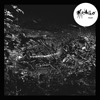 The cover photograph of this disc paints a darker picture than is actually to be heard. Which is not to say that this release doesn't continue Utech's ARC series of dark, opaque experimentalism, it just has some serene, beautiful elements that are not immediately apparent from the pseudo-1930s crime scene looking photo that adorns the front cover.
The cover photograph of this disc paints a darker picture than is actually to be heard. Which is not to say that this release doesn't continue Utech's ARC series of dark, opaque experimentalism, it just has some serene, beautiful elements that are not immediately apparent from the pseudo-1930s crime scene looking photo that adorns the front cover.
Sachiko, also a member of Overhang Party and Kosokuya, apparently works in a more psychedelic context most times, but here is delving mostly into purely "bad trip" territory. The dark ambient opening of "Dmu-Bdud Kam-Po So-Zan" with its drifting dark tones and sinister disembodied sounds like traversing through unexplored oppressive caverns. Harsher noise elements are here as well like the blasting loops of what could almost be a mutilated trombone in "Route 21" strewn atop a vaguely musical, but no less bizarre backing loop.
Tracks in which Sachiko includes her own vocals make for the most disturbing on the whole, like the cut up fragments of voice that are processed like creepy little children from beyond, like almost any Asian-inspired horror movie in the past 10 years. The culmination of this vibe is "The Voice From The Border," which stacks up scraping electronic noise and feedback squall with inhuman screeches and other vocalisms that rival that of any Hollywood voiceover artist. It is seriously creepy, disturbing sonics that pushes it into a dark place that rivals anything similar I have heard in the past year.
I referred to the fact that as a whole the album is no as dark as the artwork would indicate, and if the disc were to end here, I would be wrong. The final two tracks help elevates the disc from the ninth circle of hell and more into purgatory. "Gakida No Mori" takes the vocals and cut them up into a chanting motif that, even with the deep tones and rumbles feels somewhat lighter than what preceded it. However, the closing "Chiacona Und Konzert In G Moll" strips away the noise elements and centers itself more on soft, ethereal vocals that are really quite beautiful and constitute the entire track with the exception of some subtle background hissing.
I must take my hat off to Keith Utech for putting together this ARC series. As it is winding down (I just received the final two discs earlier this week and will be covering them very soon), it is not hard to reflect on all of the volumes and see just how many up and coming artists in the whole experimental/avant garde scene have been presented here, all complimented nicely with Max Aguilera-Hellweg's great photographs. Kunado is yet another great installment from an artist I had never heard before, but will definitely be looking for in the future.
samples:
Read More
- Anthony Locke
- Albums and Singles
This truly is a a fantastic CD of raw, early recordings from 1987 which were given to the comic creator and ex- Polvo drummer almost 20 years ago. The tracks imply the fury that the band would harness during their illustrious, monolithic career. It's a collection of good old 4-track recordings from the post Gluey Porch Treatments period. Perhaps it is a little rough around the edges but that's natural for a recording of this nature / period. It presents the group (to me one of the most important heavy rock bands of the 20th century) at their infancy and yet with a clear idea of their sound and direction.It is full of killer riffs, ace songs, and total heaviness (which isn't clear in the overall sound but all those who had been there at the recording would have been skull fucked).
This is a band at their most primal and innocent. No one can fuck with lyrics like "you disgrace me... Now you learn what it's like to cry" and "Repelled at just the site." 21½ minutes leaves me wanting more, yet I must remain grateful that these recordings were ever unearthed in the first place. Recent converts to the church of the Melvins may be disorientated a little, however, as this serves as an education to their roots and is an essential document of the bands history. In King Buzzo's guitar riffs lie the early ideas for "Anaconda" from classic their Bullhead LP and uber classic "Nightgoat" tune.
Meanwhile the comic book has some moments of genius punk rock parody and cartoonism. It is absolutely crushing stuff. This will surely (and maybe sadly) become the stuff of the infamous online bidding Web site legend.
Read More
- Anthony Locke
- Sound Bytes
- Administrator
- Albums and Singles
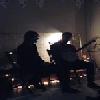 With the freak folk empire still flying its tattered psychedelic flag, it a relief to see Dumb Supper arriving on the horizon unconcerned with scrambling the folk format. Mainly a collection of traditional re-tellings, the Tylers manage to both stay true to the form's roughened simple roots.
With the freak folk empire still flying its tattered psychedelic flag, it a relief to see Dumb Supper arriving on the horizon unconcerned with scrambling the folk format. Mainly a collection of traditional re-tellings, the Tylers manage to both stay true to the form's roughened simple roots.
Relying on acoustic guitar and voice, the album has a stripped and sinewy organic feel that keeps the whole thing together. With the simple production the songs feel like they were recorded informally by some warm communal pub hearth. The only thing missing from "Queen Sally" is an ending of clinking glasses and a smattering of applause. Cath and Phil's vocals seem to slip in and out and harmony, the song's rough hewn beginnings find Phil's vocal grow in strength to a grave dancing finale. It is Cath's voice that is the main draw here, at times flightily youthful and other times like an unschooled instrument feeling its way through notes for the first time. With the melancholy melody of "Wether Skin," Cath inhabits the song like the lyric actually happened to her. Her soft anger comes over like weathered leather, her performance showing a lot of heart as a subtly performed piece of empathic characterisation. Cath avoids the narrative pitfall of delivering the killer closing lines with an aural nod or wink. Instead her delivery is weighed with an emotional knowledge.
While much of Dumb Supper is relatively straight it certainly isn't po-faced, there is heart, sprit and tenderness in what they have done here. The uncomplicated three minute lullaby "Baby's Boats" wraps up everything a parent feels for their child in a preciously floating melody. Amongst the more energetic highlights are the bucking banjo of "Yellow Hammer" and the plucky "Fisherman's Girl." The skirt swishing narrative stomp of "Devil Song" is filled out with curtseying violin and Jews harp, kicking up the song's sawdust. The new melody stilting threaded to "Death of Queen Jane" infuses a little modernity into the lyric, the spare guitar playing sounding as hesitant as the vocal delivery is worn. Even when "Wild Stormy Deep" evokes the steps of a Deep South front porch, the pair refuses to sit in Americana's pocket. These tellings feel like they have been stripped and revitalised, taken back to the root and re-told without the trimmings.
samples:
Read More

